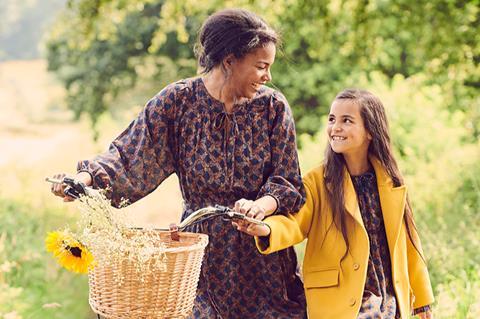In a new column on popular culture, Hope Bonarcher looks at why we insist on shunning people we don’t agree with

Most Christians who are living biblically in the 2020s will inevitably experience cancellation. It’s something I’m faced with regularly, if I’m honest. I live in bonnie, ever more ‘progressive’, Scotland, where the brilliant Kate Forbes couldn’t be chosen to represent the nation – literally, because she’s a Christian.
Recently our family made a major change; I started home educating our children. Where I’m from in America, this is hardly a big deal. But here in Scotland, I hesitate to admit it. It’s hard enough being black, Christian and a stay-at-home mom with four kids. I shudder to think what would happen if I revealed the home-educating card. I’m sure people would turn away from me, make crosses with their pointer fingers, hide their faces as they make cruel hissing sounds…It’s only happened in my imagination so far, thank goodness!
Joking aside, this is a real concern for me – though most days it’s a non-issue. I spend my days on the couch with my kids reading Mary Shelly’s Frankenstein, learning world, British and American history, or doing maths workbooks. When I do venture out into the world, I rack my brain wondering how I’d respond if someone asks how the kids are getting on in school…
I’ll say: “Actually, we homeschool now.” They’ll respond: “Oh wow! I didn’t know that – all four of them?!” I’ll say: “Yes, all four.” They’ll ask: “Why are you doing that?” I’ll respond with: “It’s a long story! We should chat about it sometime…gotta run for now…Bye!”
If I’m honest, you see, most of the reasons we have for homeschooling are faith based. We want our kids in a safe, home environment. We don’t want them being made to choose pronouns or learning aspects of sex education that are far from age appropriate. We want them learning good things about western civilisation and their Christian history and we don’t want them constantly exposed to things like friend’s phones and social media. Writing that in a national Christian magazine to a community of believers isn’t hard for me. Saying that to my next-door neighbour, or to someone on set while working freelance, puts the fear of God in me! And there lies the issue…I have to fear God more than man, which means I have to tell the truth…which also means that I may risk rejection or cancellation.
I have to fear God more than man, which means I have to tell the truth…which also means that I may risk rejection or cancellation
When I feel this way, I’m reminded of Jesus’ words in John 15:18: “If the world hates you, keep in mind that it hated me first.” Oftentimes, implicit in the life of a Christian is dealing with the revulsion others have towards the Christ she follows. Of course, people want to cancel what they can’t stand. Take Christmas, for instance. Agreeing with the Christmas story, that the womb is a sacrosanct place where the glory of human life begins at conception, could get you cancelled. Celebrating the birth of the King of the Jews while it becomes ever more culturally offensive to bless Israel could get you cancelled. Believing only a biologically female Mary could have carried the Son of Man in her womb (pronoun emphasis intended) could get you cancelled. There is reason after reason why rejoicing in Spirit and truth as a Christian might lead us to the same place it led the One whose birth we celebrate…the cross, the ultimate cancellation.

Our eternal hope
My fear of being exposed as a homeschooling Christian weirdo might not be unusual in present day, but in Acts 5:41 early Christians rejoiced that they were counted worthy to suffer dishonour for the name of Jesus. Why? Because the earliest Christians knew where their bread was buttered, and it wasn’t by the world! Their lived experience with Jesus, or with the men and women who had themselves witnessed the miracle of his resurrection, allowed them to live in the assurance of trusting God that they would rise again in Christ. They counted themselves blessed to be worthy to suffer for Jesus, viewing their lives through the lens of eternity. While on this earth they might be crucified, in the world to come they would rise again to reign with Jesus for all eternity.
And so, what could be better than a New Year of resurrections?! It’s the time of hopefulness, of looking into the future with aspirational desires of what’s to come…the year is our oyster! Yet can we remember this 2024 as believers, when there is nowhere to go but upwards, we must start by going down? I’ll begin by embracing the threat of social cancellation, risking the reproach identifying with Jesus often brings, trusting him to never leave me nor forsake me in His perfect process. If I die, it will only be my pride. I choose to die and resurrect this year, again and again, if it means becoming more like Jesu

































No comments yet